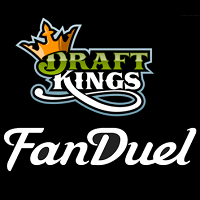FanDuel and DraftKings are making a major shift in strategy: they are stepping away from Nevada’s regulated sportsbook market in order to focus on prediction markets under federal oversight. The Nevada Gaming Control Board has confirmed that FanDuel surrendered its gaming licenses, and DraftKings withdrew its pending sportsbook applications. The core of the conflict lies in “sports event contracts,” or prediction-market products.
Nevada regulators regard these as incompatible with the state’s traditional gaming model, while FanDuel and DraftKings argue that these contracts should fall under the jurisdiction of the Commodity Futures Trading Commission instead of state gaming boards. FanDuel is preparing to launch a standalone mobile platform called FanDuel Predicts, in partnership with CME Group. The app is scheduled to go live in December and will offer contracts tied to major sports — baseball, football, basketball, hockey — as well as non-sports benchmarks like economic indicators. FanDuel plans to limit its sports-contract offerings to states where online sports betting is not yet legal.
Flutter, the parent company of FanDuel, says it will spend between forty and fifty million dollars in the current quarter on the launch, and expects to invest two- to three-hundred million dollars into its prediction-market business over the course of 2026. Meanwhile, DraftKings is gearing up for its own prediction-market launch. After acquiring a CFTC-regulated business called Railbird, DraftKings aims to roll out an app named DraftKings Predictions. Like FanDuel, DraftKings intends to geo-fence its prediction-market platform so that it operates only in states without legal regulated sports betting.
Both companies have also exited the American Gaming Association, signaling that they no longer see alignment with it now that their business model is shifting toward federally overseen prediction-market products. This move underscores a broader regulatory tension in the U.S. gaming landscape: should prediction markets be treated like gambling under state rules, or regulated as financial instruments at the federal level? By abandoning Nevada, FanDuel and DraftKings are signaling they believe their long-term growth lies outside the traditional state-by-state gaming regime, in markets governed by the CFTC.



